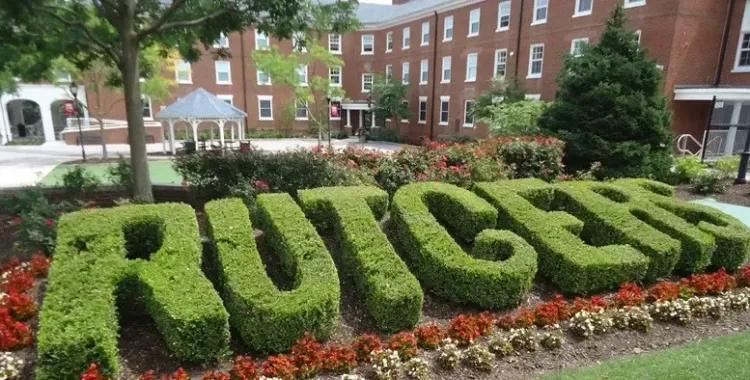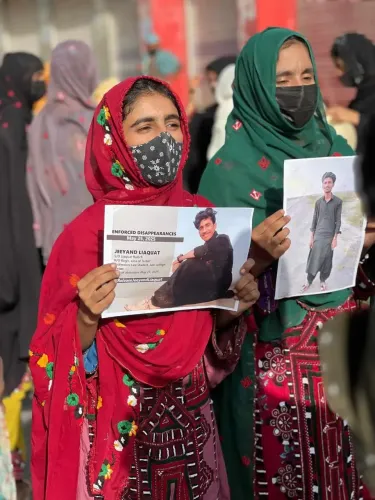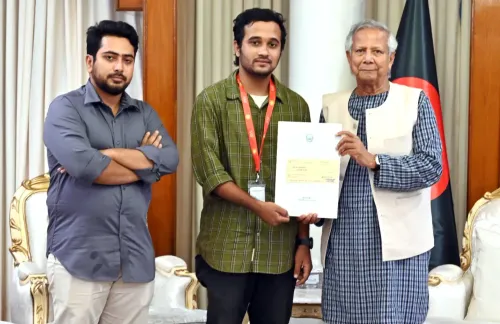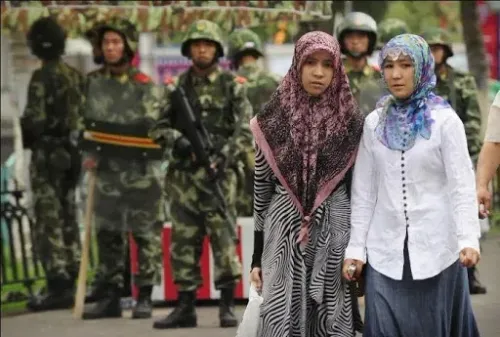Could a University Event in New Jersey Fuel Anti-Hindu Sentiment?

Synopsis
Key Takeaways
- Bipartisan concern from US Congress members over potential anti-Hindu sentiment.
- Event at Rutgers titled “Hindutva in America” could misrepresent Hindu community.
- Congress members urge freedom of speech without targeting Hindu Americans.
- Recent violence against Hindu temples raises alarms.
- Hindu advocacy groups are concerned about being labeled as extremists.
New York, Oct 27 (NationPress) A bipartisan coalition of US Congress members has voiced concerns that an upcoming university event could exacerbate prejudice against Hindus, especially amidst rising violence directed at Hindu temples.
In a letter to William Tate, President of Rutgers University in New Jersey, the Congress members articulated their worries that the event set for Monday misrepresents the diverse and peaceful nature of the Hindu community, potentially affecting Hindu individuals on college campuses and nationwide.
Signatories of the letter include Democrats Sanford Bishop from Georgia, Shri Thanedar from Illinois, and Suhas Subramanyam from Virginia, along with Republican Rich McCormick from Georgia.
The event at Rutgers, titled “Hindutva in America: A Threat to Equality and Religious Pluralism,” is based on a report named “Hindutva in America: An Ethnonationalist Threat to Equality and Religious Pluralism.”
Sahar Aziz, a law professor, is set to moderate, while Audrey Truschke, a history professor known for her defense of Aurangzeb, will be the keynote speaker. Aurangzeb is infamous for his persecution of Hindus and Sikhs, including the execution of Guru Teg Bahadur.
The Congress members clarified that they do not seek to ban the event at the state-funded university, but rather urge Rutgers to ensure its programming promotes freedom of speech without specifically targeting Hindu Americans.
They highlighted a series of violent incidents against Hindu temples, such as attacks on the Shri Swaminarayan Mandir in Indiana and the Shri Radha Krishna Temple in Utah.
“Given the current climate, we are worried that the rhetoric in the report may intensify prejudice, particularly affecting Hindu students who might feel unfairly singled out or unsafe,” they stated.
The report called for law enforcement and civil society to distance themselves from US-based Hindu nationalist organizations, raising alarm among the Congress members regarding the implications of conflating religious organizations with nationalist groups.
Targeted Hindu civil rights groups mentioned in the report include the Hindu American Foundation (HAF) and the Coalition of Hindus of North America (CoHNA), who have stated that opposing such intolerance often leads to being labeled as “Hindutva extremists.”
Many universities in the US have become centers of religious intolerance led by leftist groups and Islamists. The Trump administration previously took steps against campus bias affecting Jewish students, noting that these same groups frequently engage in anti-Hindu initiatives.
The HAF expressed in an open letter to Rutgers that they do not wish to see the event canceled, but rather seek clarification that the views presented align with the organizers and that the university publicly disassociates from the content.
CoHNA has reported hearing from students feeling vulnerable and threatened simply for being Hindus on campus.









